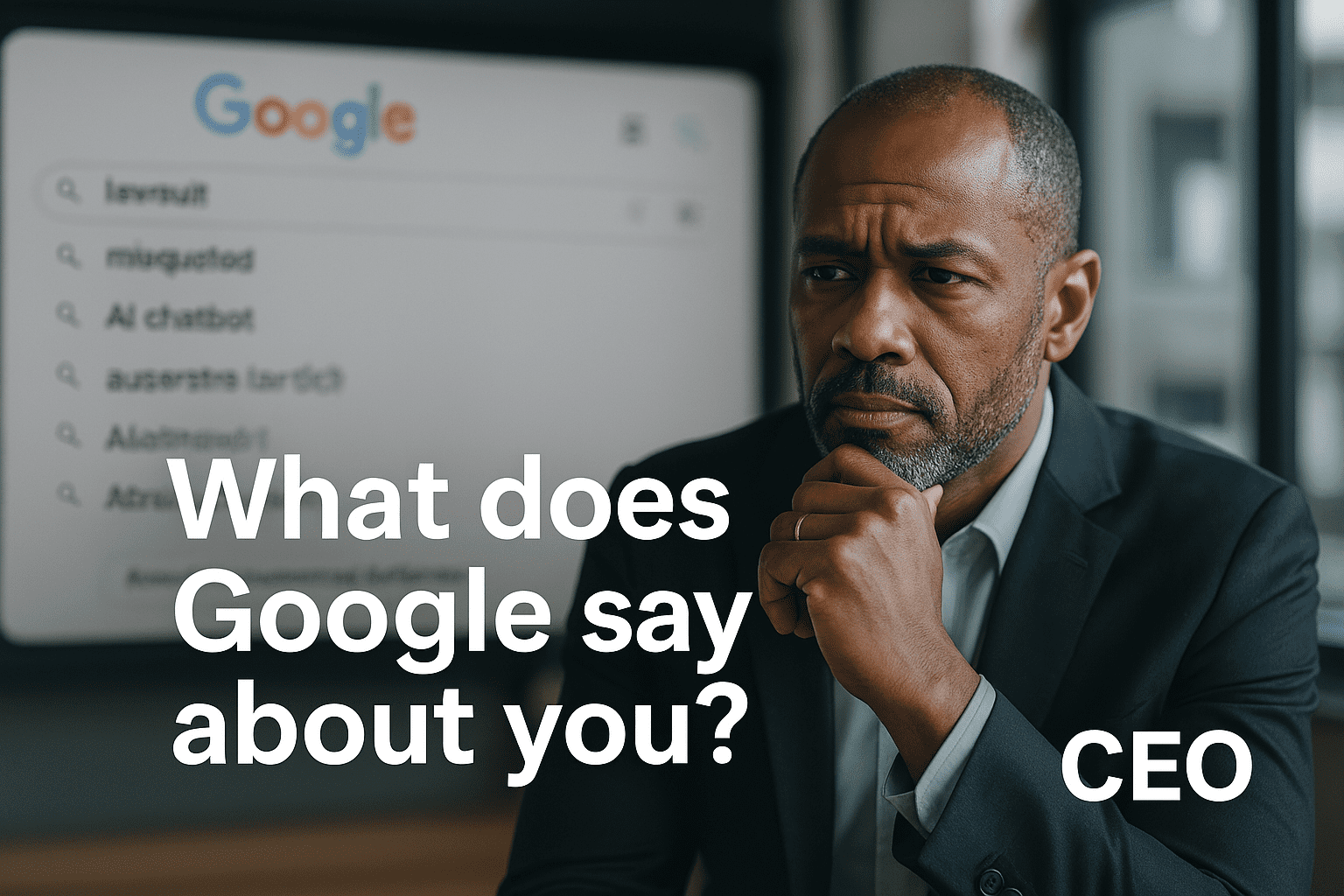Last Updated on October 29, 2024 by Steven W. Giovinco
Spoiler alert: This contains key details about the story.
Netflix’s Sweet Bobby: My Catfish Nightmare is a documentary series that makes you question everything about online relationships. It dives into a surreal world of catfishing—a world where a person’s entire online presence is fabricated to manipulate someone else’s life. What starts as an innocent Facebook connection for Kirat Assi, a London-based radio host/marketer, soon becomes a matrix of lies that is completely consuming, and is a cautionary tale about false online reputation on an epic scale.
The All-Consuming Power of a False Online Persona
Kirat first connects with “Bobby,” a charming cardiologist introduced to her by a cousin—a trusted family link that made the relationship feel safe. Over the next eight years, he integrates himself deeper and deeper into her life, with stories about illness, family emergencies, and even witness protection to avoid meeting in person.
Bobby gradually infiltrated her daily routine, emotions, and even her future plans including marriage and kids, and it all felt heartbreakingly real to Kirat. What makes it even scarier is how easy it was for the catfisher to build a convincing online reputation. By using social media, fabricated relationships, and familiar connections, the catfisher made it nearly impossible for Kirat to discover the truth.
The Emotional Devastation of Manipulation
The emotional fallout for Kirat was truly devastating. Trust was shattered, mental health deteriorated, and she became isolated from friends and family, trapped in a reality fabricated by someone else’s lies. This documentary shows how a false online reputation can act as a weapon—one that erodes self-esteem, mental stability, and personal relationships. As Kirat’s family said, it felt like her life was stolen from her by someone who didn’t even exist..
False Reputations in Business and Professional Spaces
Devastatingly chilling is that this type of manipulation doesn’t stop at personal relationships. The concept of creating fake reputations online is becoming a significant problem in business environments too.
Consider online reviews, LinkedIn profiles, and public personas—when these are faked, they can mislead clients, employers, and investors. Just like in Kirat’s case, people in business can fall victim to constructed lies, making decisions based on false trust. Fraudulent reputations can destroy companies, harm careers, and leave behind a trail of legal and financial damage.
Whether it’s fake job credentials on social platforms or fabricated feedback loops in customer reviews, online manipulation is a growing issue. The line between who someone is and who they appear to be is becoming dangerously thin in the digital online space.
Why Sweet Bobby Feels So Real and Terrifying
The documentary, adapted from the Tortoise Media podcast, offers a slightly condensed version of the events. It captures the emotional toll this deception took on the victim, Kirat. The scariest part is realizing how vulnerable we all are in the digital world. With just a little bit of information and some well-timed lies, someone can concoct an entire reputation. And once that false reputation takes root, it’s incredibly hard to spot the truth. Whether in relationships or professional environments, the consequences can be catastrophic.
How to Combat False Online Reputations and Digital Manipulation
Tools and Resources
Reverse Image Searches – Use tools like Google Reverse Image Search or services like Social Catfish to see whether photos are real or stolen. This can help uncover fake profiles.
Background Check Services – Instant Checkmate or Information.com allows you to run searches on individuals to uncover real identities and online activities. These tools are especially helpful when contacting new people on social media or dating platforms.
Digital Literacy Resources – eSafety Commissioner and other sites educate and identify and report online scams, including catfishing and other reputation-based deceptions.
Cyberbullying and Mental Health Support – The Cybersmile Foundation offers resources for individuals affected by online harassment and deception, providing emotional support and practical steps for victims.
Best Practices for Prevention
Be Skeptical of Online Identities: Avoid trusting new contacts/connections too quickly, especially if they resist video calls or provide limited personal information.
- Fake Documents: Drivers licenses, passports, identity cards, bank statements, airplane tickets, etc. can be easily fabricated. Be highly aware.
Monitor Social Media Connections: Look for red flags, such as newly created accounts with few followers or unusually polished photos.
Limit Personal Information Sharing: Be cautious about what you share online, especially on public platforms. Fraudsters often use personal details to build fake profiles or engage in scams.
Report Suspicious Behavior: Platforms like Facebook, Instagram, and Twitter have mechanisms for reporting fake profiles or abusive behavior. Acting early can prevent further harm.
These tools and approaches offer practical steps to reduce the risk of falling for online impersonation, whether for personal safety or protecting professional reputations. By staying vigilant and using the right resources, you have a chance to minimize the impact of false online identities and scams.
A Harsh Reminder to Stay Vigilant Online
Sweet Bobby is more than just a shocking catfishing story—it can be a wake-up call. It forces us to rethink online trust and be more cautious about the personas we engage with online. Whether you’re building personal connections or making professional decisions, it’s a reminder to look beyond appearances and verify what you’re seeing.
This story shows that online manipulation isn’t harmless—it’s a form of control that can destroy lives, both personally and professionally. So, if there’s one thing to take away from Sweet Bobby, it’s this: trust cautiously, question often, and always stay skeptical of what you see online. Because sometimes, the person—or business—you think you know is nothing more than a carefully crafted illusion.
Questions?
Feel free to learn more about catfishing and online reputation management.




